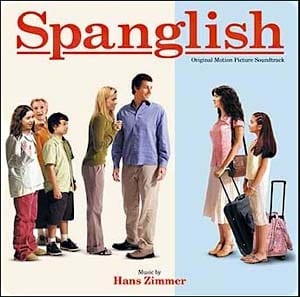By Helen Pierpoint
WORDS such as ‘blog’, ‘friki’ and ‘sushi’ have been added to the Spanish Royal Academy’s online dictionary.
In a recent update – which marks the fifth since the website’s inception in 2001 – words and phrases including ‘blog’ and ‘bloguero’ (blogger), ‘chatear’ adapted from the English ‘chat’ and ‘espanglish’- a hybrid of English and Spanish, have been officially recognised.
It points to a growing trend of English words becoming adapted into Spanish in a linguistic invasion known as ‘loaning’.
Between September 2007 and December 2011 the additions and alterations to the dictionary have totalled 1,697.
English first began to creep into the Spanish language when football became popular in Spain.
Words like ‘penalti’ and ‘corner’ became commonplace as Spaniards looked to the birthplace of football to dictate how they would describe the game.
Moreover as travelling abroad became more affordable and communication became easier, British and American cultures began to arouse Spanish curiosity.
In the last 10 years, the number of ‘loans’ has skyrocketed with the arrival of the internet, satellite TV and an increase in American and British products being imported abroad.
‘El sandwich’, ‘trendy’ and ‘email’ are among hundreds of words added to the Spanish dictionary.
According to English professor Zac Tobias, the reason English words have become so popular is that ‘certain English words express a lot with a little’.
Indeed, many white-collar workers in Spain nowadays prefer to say ‘email’ instead of ‘correo electronico’ as it takes less time and effort
to say.
But what is interesting is that various English ‘loan’ words used in everyday language in Spain would be unrecognisable to an English speaker.
English words have become popular as they express a lot with a little
Many words must be respelt and modified to suit the Spanish language.
For instance, the ‘smartphone’ has become ‘esmartphone’ as Spaniards struggle to pronounce words beginning with ‘s’.
‘Friki’ -meaning nerd – has become a noun instead of an adjective, and ‘fashion’ is used as an adjective to describe someone with good fashion sense.
Despite its eagerness to keep with the times, Spain ranks poorly when it comes to the number of people who speak English.
It came 24th behind Norway, France and Portugal in a recent survey.












Problem with the anglisisms used in Spain is that some of those using them dont even know that it is an anglisism.
“Un friki” would be used as a noun referring to someone who is any different in either thinking, political allegiance, dress, or social activity to an individual’s or a group’s perception of “uniformity” or sense of “belonging” to their own particular “correct” and “acceptable” society.
The Spanish language has plenty of words to use when referring to a “nurd” as such, they dont need anglisisms for that, its rich enough already.
There are still more Spanish words into English, specially American English. A very few examples starting with A -too many to write in small comment: Adobe, aficionado, albatross, Acatraz, alligator, amigo, anchovi, angeleno, alpaca, avocado, arroyo, armada, apache, adios, hasta la vista (wait, that starts with h) ;-)
Difficult really to separate “Espanglish” words from so-called “friendly words”, of which there are hundreds, maybe a couple of thousand. Like, exportacion, representacion, exterior, secular, tendencia, audencia. Check a dictionary, there are loads of ’em. Not so much English or Spanish but more Latin, at least in their roots.Language is fluid, even more so in these internet days. Nothing to be concerned about, we should be glad of anything that draws us together.
The article seems to hint at a notion of English superiority, which seems to be a bit of a theme in the Olive Press.
“So many English words are being used in Spain now!”
How many more Spanish words have been a part of the English language for the past 600 years? How many English speakers are also completely unaware of this fact? And how many English speakers are also proficient in Spanish? The statement “Spain ranks poorly when it comes to the number of people who speak English” is just as accurate as “The United Kingdom ranks poorly when it comes to the number of people who speak Spanish.”
Not to mention that it isn’t the job of Spanish individuals living in Spain to learn English. It’s the job of English speakers living in Spain to learn Spanish. Something they usually do very poorly, or don’t even bother to do at all.
It’s nothing to do with “superiority”. The widespread use of English is a historical accident, mostly due to our penchant for empire building. The same used to be true of Latin, to be a lawyer or doctor etc. it was necessary to have a working knowledge of that language. This again, was due to the Romans predilection for conquest. In a similar fashion, English has become the lingua franca (largely) of business and the internet. Which explains why teaching English as a foreign language is one of the few growth areas in Spain. Spanish students of English are keen to gain this skill to advance their careers. Which it will, until Mandarin Chinese takes over…..